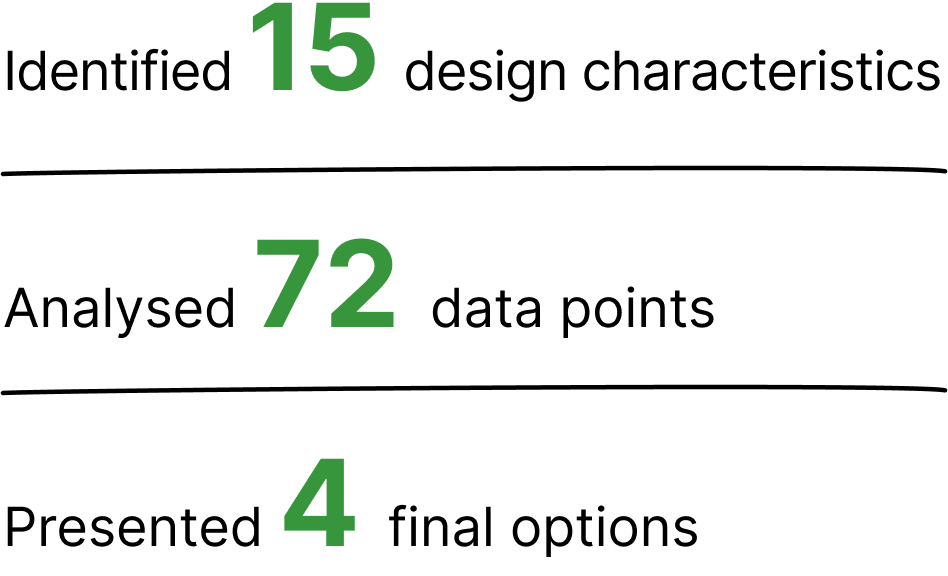Discover markets and customers for which the Celtic Renewables biobased solvents deliver premium value, overcoming barriers to market entry.
Eleven target markets identified and ranked by ease of entry. Direct introductions to 6 major multinational customers covering 51% of the highest-priority market, including 4 of the top 5 market leaders.
As the biobased economy picks up speed, demand is growing for biobased chemicals with outstanding performance and sustainability metrics. In Scotland, Celtic Renewables found they could apply modern microbiology and process technology to upgrade a centuries-old fermentation process. They took waste from Scotland’s famous whisky distilleries and turned it into clean, natural biobased acetone and butanol. The technology was brilliant, but they faced the same challenge as any new manufacturer – could they find customers who would understand the value in their product?
Scaling chemical production from a few kilograms to thousands of tonnes is an expensive endeavour with many roadblocks. As supply increases and production costs drop, the price of the new product comes down, eventually meeting conventional pricing and becoming widespread in the market. Before that point is the valley of death, where the production cost is still high, but venture capital has been exhausted and customers must be found who will support an elevated price.

Celtic Renewables found themselves at this point, with their staff simultaneously building and commissioning a new production plant, analysing sustainability metrics, seeking new funding, weighing up pros and cons of different markets, and talking to potential customers. They came to Green Rose Chemistry seeking expertise that would reduce their workload and speed up their commercialisation journey, safely bringing their biobased solvents to a wider market.
In our initial consultation, we discussed the success of Celtic Renewables’ pilot plant, targets for scale-up, and unique advantages of Celtic biobased solvents that would position them favourably in certain markets.
We decided to begin with a broad assessment of opportunities, building on the market research already performed and identifying new opportunities within easy reach. Our clear analysis of advantages and disadvantages for biobased solvents in each market would enable Celtic Renewables to select the ideal markets to focus on, narrowing the scope of the deep research to bring project costs down.
Green Rose would then conduct targeted in-depth research, using our cross-sectoral network to identify and open discussions with customers that fit the ideal profile for the Celtic scale-up plan. The outcomes would be a short assessment of opportunity report, a final brief identifying next steps, and direct introductions to interested customers.

To begin, Green Rose identified applications in which the advantages of Celtic biobased solvents would add significant value, seeking markets that could support the desired price and target volume. We used our unique combination of chemistry, sustainability, and market expertise to identify five key opportunities in which a naturally-derived solvent would outperform its petrochemical competitors. We also looked at the product development challenges associated with each opportunity, delivering a clear ranking of target markets.
After our presentation of key opportunities, Celtic Renewables selected two markets in which they needed assistance reaching out to customers. Green Rose got to work, identifying the market leaders and using our network to find the right connections to speak to. We held initial discussions with each potential customer, asking targeted questions about their solvent needs and sustainability goals to discover customers with a real interest in the Celtic Renewables USP.

To conclude the project, we drew up a short report summarising our industry consultations. We made direct introductions to decision-makers at 6 major multinational companies, representing 51% of the highest-priority market and 4 out of the 5 market leaders. For each of these potential customers, Green Rose identified sustainability and performance metrics that were of specific concern, helping Celtic Renewables to collect the right data to make the sale. Finally, we went the extra mile by advising on the ideal next steps for each customer, ranging from pursuing peer-reviewed LCA data to sending production samples.

With delivery of the final report, the journey to market for Celtic Renewables became smoother. They had six new high-level contacts in their target markets, all with confirmed interest in purchasing the new Celtic Renewables solvents at the right scale and price. Green Rose also determined the sustainability metrics of highest concern in the new markets, identifying the most valuable directions for additional research.
By hiring Green Rose Chemistry, Celtic Renewables accelerated and de-risked their journey to market, bypassing lengthy customer discovery meetings and focusing on their core mission: producing low-carbon, high-value sustainable chemicals.

“Green Rose delivered timely, high-quality work that exceeded our expectations and provided excellent value for money. Anna’s background, knowledge and contacts in our target markets were a great fit with our business, and very challenging to find elsewhere in the industry. We gained introductions to a number of prospective high-value customers, broadening our customer base to enable future production of bio-acetone, bio-butanol and bio-ethanol.”